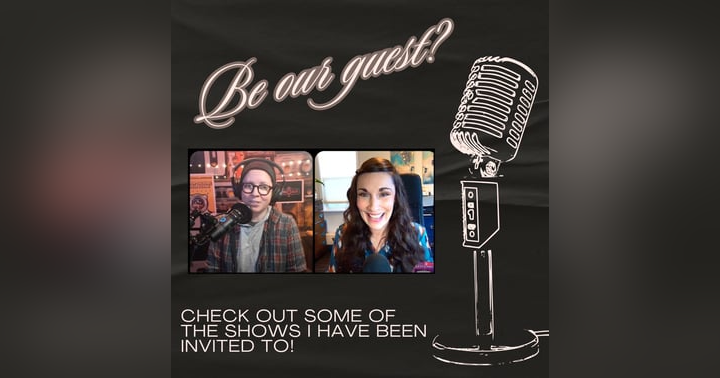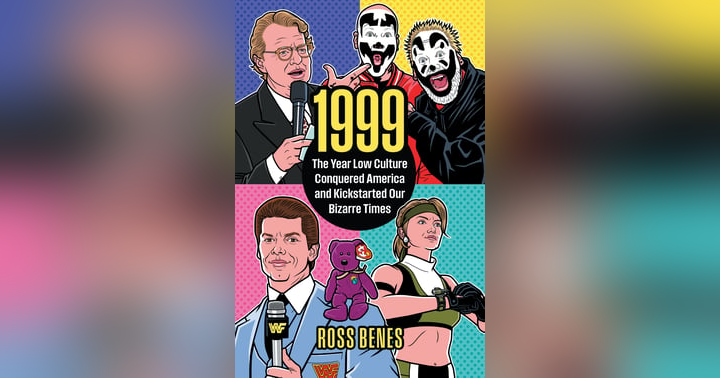5 important takeaways about grief from Brieanna Wilkoff's spectacular book, "I'll Be There For You."

Suppose you have been a follower of the show for some time and are familiar with its backstory. In that case, you likely know that I started the Pop Culture Retrospective Podcast as a way of dealing with the devastating grief that came after the tragic passing of my sister in 2019. You may not know that I spent almost 20 years working in the mental health field, most recently as a School Counselor at the high school level for 10 years. I guess what I am trying to say is that I have extensive experience in the world of grief from both a personal and professional perspective. I say that not to brag but to emphasize my "street cred," if you will, when it comes to grief. So when I had the opportunity to read the book, "I'll Be There For You" by Brieanna Wilkoff, and later interview her, I was excited because the premise of the story appealed to me both as a former educator and grief-stricken younger sibling. Whether you are an educator, a young person, a parent, or just want to learn how to support someone coping with grief, this book is an excellent depiction of how to do so. "I'll Be There For You" is a book that is so much more than just a story about grief, however, the way it is woven into this story is significant and beautifully done. With that said, I wanted to share 5 important takeaways from this wonderful story about a young woman's grief journey without giving away any specific plot details because it's such a good book that you should read (I'm not kidding!):
1.) Grief is a journey, not a destination. I know, I know, the whole "it's a journey, not a destination" is such a cliche phrase, but sometimes cliches exist for a reason! Ha! For anyone who has experienced overwhelming grief, then you know that there is no "getting over" grief. It never goes away. We learn how to live with our grief and carry on. The book's protagonist, a high school student named Rae, is dealing with the loss of her father, which is always on her mind. It is a part of her and always will be. I appreciated that Wilkoff didn't write about how this loss somehow faded into the background. It is a recurring theme in the book and as we all know, it never goes away in real life either.
2.) There is no perfect way to respond to someone's grief. Be present. Listen. In my work as a School Counselor, I helped support students through their respective grief journeys and other situations that impacted the entire student body. Many times, faculty would ask me what they should say, and what should they do when helping students cope with grief. Often, my answer would be to just listen. Sometimes the best thing to say is nothing. Just listening and validating how someone is feeling is the best rule of thumb. Saying minimizing statements like "Well, they are in a better place now" or "This too shall pass" may not be helpful. In Wilkoff's story, she does a great job writing about this.
3.) Healthy outlets are one way to deal with grief - with more positive benefits than some alternatives. Also, kindness matters, even in our darkest days. In "I'll Be There For You," Rae, the main character, is feeling lost and a bit disconnected from her peers after the passing of her father. Thankfully, with some gentle encouragement (and some intrinsic motivation), she gets involved with some activities that provide her with a healthy outlet for where she is at in her life. It also helps her feel connected with her school community. Again, this doesn't erase what she has been through, but it helps show her (and the readers) that you can still do creative and enjoyable things, even if you feel like the weight of the world is on your shoulders. If we are lucky enough, sometimes brightness can come out of the darkness. I can relate to all of this!
4.) There can be comfort with nostalgia or learning more about what our (lost) loved ones were into. On the cover of the book, you can see the inside of a locker, where the spine of a book on the top shelf says "80's Rock." Without saying too much, just note that this theme plays into the book throughout Rae's journey. She finds comfort in the music that her father was passionate about. Nostalgia actually can help us feel better about our circumstances which is something I talk about extensively on the podcast. There has been a lot of research done on this topic including this fantastic article you can read here. One quote I liked from that article said: "Nostalgic memories remind us of those we love and who have loved us, which strengthens our sense that we are not in this alone." —psychologist Krystine I. Batcho, PhD. This is what my podcast is all about, re-living Pop Culture from the 80s, 90s, and early 2000s in memory of my sister.
5.) Grief has no timeline, no perfect answers, no perfect solutions, no recipe for how to cope, and is different for everyone. Need I say more?
If you are interested in learning more about "I'll Be There For You" and Brieanna Wilkoff, please tune in to my episode from earlier this December. You can find that episode here:









